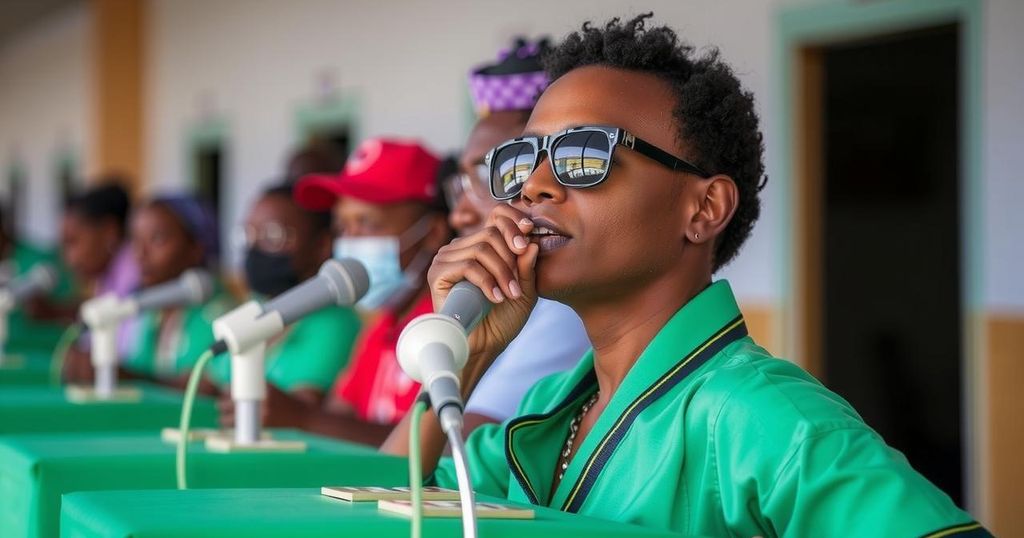On Sunday, the Comoros held elections for parliament amidst an opposition boycott, citing a lack of transparency and fairness. Nour El Fath Azali, the president’s son, is a key candidate, but numerous polling stations opened late, raising concerns over the election’s integrity. The elections follow a contentious period for President Azali, who faces strong accusations of authoritarianism and electoral fraud.
The Comoros, an island nation in the Indian Ocean, conducted elections on Sunday for parliamentary seats, amid a significant boycott from opposition parties who claim the process lacks fairness and transparency. Nour El Fath Azali, son of the incumbent President Azali Assoumani, is a notable candidate, contesting a seat in a constituency near the capital, Moroni. The elections experienced delays, with several polling stations failing to open on schedule due to logistical challenges, prompting U.S. observer James Burns to highlight the improvised conditions in some booths.
Critics of President Azali, who continues to face accusations of authoritarianism following his disputed election victory in January 2024, expressed concerns over the legitimacy of these elections. Despite opposition candidates participating to prevent a repeat of the complete boycott witnessed in 2020, many believe the ruling party, Convention for the Renewal of the Comoros (CRC), is poised to dominate once more. With about 340,000 registered voters, this election will elect thirty-three members of parliament, although the absence of rival candidates in some constituencies appears to further solidify CRC’s advantage.
The political landscape in Comoros has been turbulent, particularly under President Azali Assoumani’s leadership. Having initially seized power in a military coup in 1999, President Azali returned to office amid allegations of electoral fraud. His governance has increasingly faced claims of authoritarian practices, culminating in civil unrest and discontent among the populace. The current elections serve as a critical examination of the democratic processes within the nation, especially given the historical context of government opposition boycotts and accusations of election malfeasance.
In summary, the elections in Comoros reflect the ongoing struggle for political integrity in a nation marked by previous disputes over electoral fairness. With significant opposition backlash against the legitimacy of the electoral process under President Azali, the outcomes could further entrench the ruling party’s power while perpetuating the cycle of political exclusion for dissenting voices. This situation underscores the need for transparent governance and credible electoral processes to foster trust among the electorate.
Original Source: www.barrons.com






